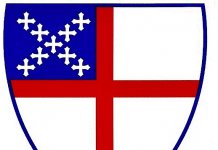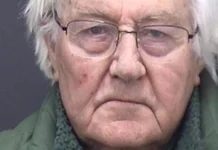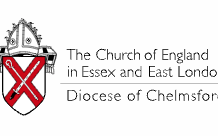| Lower Court Judge Issues Ruling Contrary to SC Supreme Court Decision from August 2017 |
CHARLESTON, SC – (June 19, 2020) South Carolina Circuit Court Judge Edgar Dickson, tasked in November 2017 by the South Carolina Supreme Court (SCSC) with a remittitur to enforce the final judgment of the SCSC which ruled in August 2017 that the diocesan property and 29 parishes should be returned to the parties affiliated with The Episcopal Church, issued an Order earlier today that seems to be contrary to that decision. In his Order, he ruled that the properties instead belong to each congregation, using the application of the neutral principles of law. His order indicates that the historic Episcopal Diocese of South Carolina has no interest in the properties of the breakaway congregations that left the historic diocese and The Episcopal Church.
While the August 2017 final judgement of the South Carolina Supreme Court was based on a finding that these specific diocesan properties had acceded to the 1979 Dennis Canon, Judge Dickson found no explicit accession existed. As noted in the Order, the 1979 Dennis Canon states the following: “All real and personal property held by or for the benefit of any Parish, Mission or Congregation is held in trust for this Church and the Diocese thereof in which such Parish, Mission or Congregation is located. The existence of this trust, however, shall in no way limit the power and authority of the Parish, Mission or Congregation otherwise existing over such property so long as the particular Parish, Mission or Congregation remain a part of, and subject to this Church and its Constitution and Canons.”
In his opinion with the majority in August 2017, SC Supreme Court Justice Costa Pleicones noted that a failure to recognize the “ecclesiastical nature of this dispute,” would “impose a requirement that each local church must specifically accede to the Dennis Canon before it can be bound. Such a requirement entangles the civil court in church matters, for TEC’s Canons specifically provide that ‘no such action shall be necessary for the existence and validity of the trust.’”
Judge Dickson’s order today seems inconsistent with that final judgement. However, representatives of the Diocese remain positive about the future. “This is not a final decision; it is yet another step on a long journey to full reconciliation within our Diocese,” said Diocesan Chancellor Thomas S. Tisdale, Jr.
“While we are understandably disappointed that Judge Dickson has not enforced the Supreme Court’s decision as directed, we are hopeful that the South Carolina Supreme Court will hear the matter promptly and correct any errors that exist in today’s order,” said Tisdale. Our legal team has already begun working on a formal response to this order that will be filed in the near future.
In his opinion, Judge Dickson ordered that the Federal Court has jurisdiction over all matters relating to trademarks, service marks, and intellectual property. To this end, our diocese remains the historic (Episcopal) Diocese of South Carolina.
A NOTE FROM ARCHDEACON CALHOUN WALPOLE ON TODAY’S NEWS
The news today is deflating to our deep desire to restore the Diocese of South Carolina and see our beloved diocese resurrected in newness of life—in both wholeness of health and fullness of being. But we do not lose heart, as our struggle is far from over.
In this time of sweeping change across our country and proper confrontation with truth, we in the Diocese of South Carolina recognize our historical tendency of exclusion and subjugation of peoples—from African Americans to women to the LGBTQ community. Given that historical tendency, it is vital for us to remember today that our struggle here in South Carolina is, at its very core, a struggle for justice. And any struggle for justice is always worth it. The road may be hard. It may be long. It is certainly a dusty and winding road. But it is the road we have been placed upon together—and are privileged to travel—not only today—but on behalf of the future and for generations yet unborn. Today may feel like a sudden stop along the road—but as pilgrims, we remember that the road continues.
As our martyred bishop, William Alexander Guerry, once wrote: “If we are to be truly Catholic, as Christ himself is catholic, then we must have a Church broad enough to embrace in its communion every living human soul.” This is our legacy. This is our calling.
“Let us not grow weary in well-doing, for in due season we shall reap, if we do not lose heart.”
Faithfully yours,
Callie










